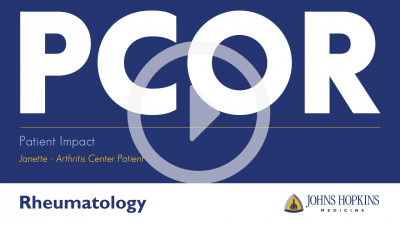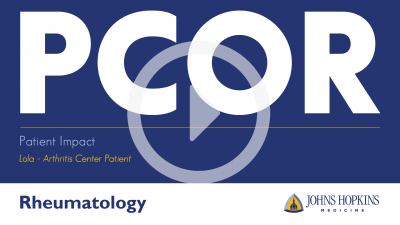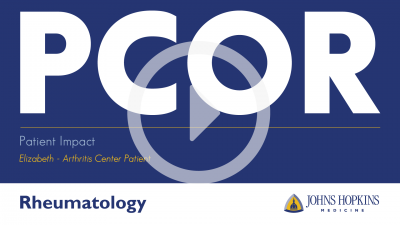We had patients complete questionnaires about their experience, and we talked to a number of patients who participated in the study to hear their stories and find out if and how the study had affected them. Please take a few minutes to listen to some of our patients share their stories about what the study meant to them.
Our Patients’ Story
It’s easy to get caught up in the fast paced environment of the doctor’s office. You check in, fill out paperwork, enter the exam room, answer a lot of questions from your doctor, receive prescriptions for lab tests, and you go home. Sitting at home, you realize you forgot to ask the list of questions you had in your head, or maybe you were having symptoms that you did not even associate with your condition so you did not bring them up during your visit. Comments like these were typical for some of our patients. Here is what some of the patients who were a part of this study have to say.
Right away, patients noticed a difference between the questions that they were answering on the tablet using the PROMIS measures and the paper questionnaires they usually complete at their visits. Patients compared the questions saying, “The PROMIS questions were better because they varied depending on your response to the previous question. If the questions were answered differently, then a different series of questions would come up.” Having a system that worked directly with their answers gave patients a feeling that their doctor could get a true sense of how they were doing overall.
Patients thought that answering questions about so many different symptoms and impacts helped give them better insight about what to discuss with their doctors during their clinic visit. Many patients thought that completing the questions before the clinic visits enriched their conversations with their doctors by giving them a guide as to what to talk about and how their arthritis was impacting them. One patient told us how it affected her communication with her doctor, “it made the visit much more efficient, much more focused, and more of a collegial interaction. It gave the sense of being participants in our care rather than non-active recipients of healthcare.”
Sometimes it’s not that you don’t want to tell your doctor how you’re feeling, but maybe you don’t know how to describe what you’re feeling. Some patients gained a better understanding of how they were feeling and were able to express that to their doctor. There were symptoms and issues that patients had not associated with their RA until it was brought up in the questions. Having these symptoms and issues brought up helped patients learn more about how their disease was affecting them in other ways.
Many patients thought that their communication with their doctors improved, and some saw changes in how they participated in their healthcare because of the study. When patients saw their results from the questionnaire, they were able to compare their results from the previous visit. They could see if they improved on areas discussed at their prior visit or see if any new changes had occurred. Seeing how results would change over time or remain the same, gave patients a marker for how they were doing. For example, one patient noticed that their pain scores and sleep scores were closely related. The patient talked about this to her doctor and they were able to help treat the sleep specifically with additional medicine.
Sometimes the results were a surprise to patients. Some people living with RA for many years realized how much their disease changed what they considered to be “normal” when it came to pain, fatigue, physical function, and sleep. One patient mentioned how surprised she was at the difference between her score, and what was considered normal for the national average. She thought she was doing OK by her standards, but was far worse than the average population
The overall experience and information patients received from the PCORI pilot study can be summed up in one of our patient’s quote. “A patient’s mind can be focused on how they’re doing, how they’re going to be, what do they need to do now, what is the doctor going to say, especially if it’s something that’s a journey. A patient can be so consumed doing that and making sure they’re well that we don’t think about taking a few minutes to give a little input and more information about ourselves and our condition.” Patients found the information they were able to receive and share with their providers was “monumental in its benefits.”
ACKNOWLEDGEMENTS AND DISCLAIMERS: The research project described was funded through a Pilot Project Award (IP2-PI0000737) from the Patient Centered Outcomes Research Institute (PCORI) awarded to Dr. Clifton Bingham. Funding to enable the development of material concerning this project was provided in part through a Eugene Washington PCORI Engagement Award (EAIN-1988). This work described has also been supported through the Rheumatic Diseases Research Core Center funded by the National Institutes of Health (NIH) and the National Institute of Arthritis, Musculoskeletal, and Skin Diseases (NIAMS) (P30-AR053503), the Ira Fine Discovery Fund, the Don and Dorothy Stabler Foundation, and the Camille Julia Morgan Arthritis Research and Education Fund. All statements on this website, including its findings and conclusions, are solely those of the authors and do not necessarily represent the views of PCORI, its Board of Governors, or Methodology Committee, or of NIAMS or NIH. We thank the patients, staff, and physicians for their participation in this study as well as our external stakeholders and advisors. Special thanks to CreakyJoints® (www.CreakyJoints.org) for their time and support for this project and the engagement of an activated online community of people living with arthritis.




